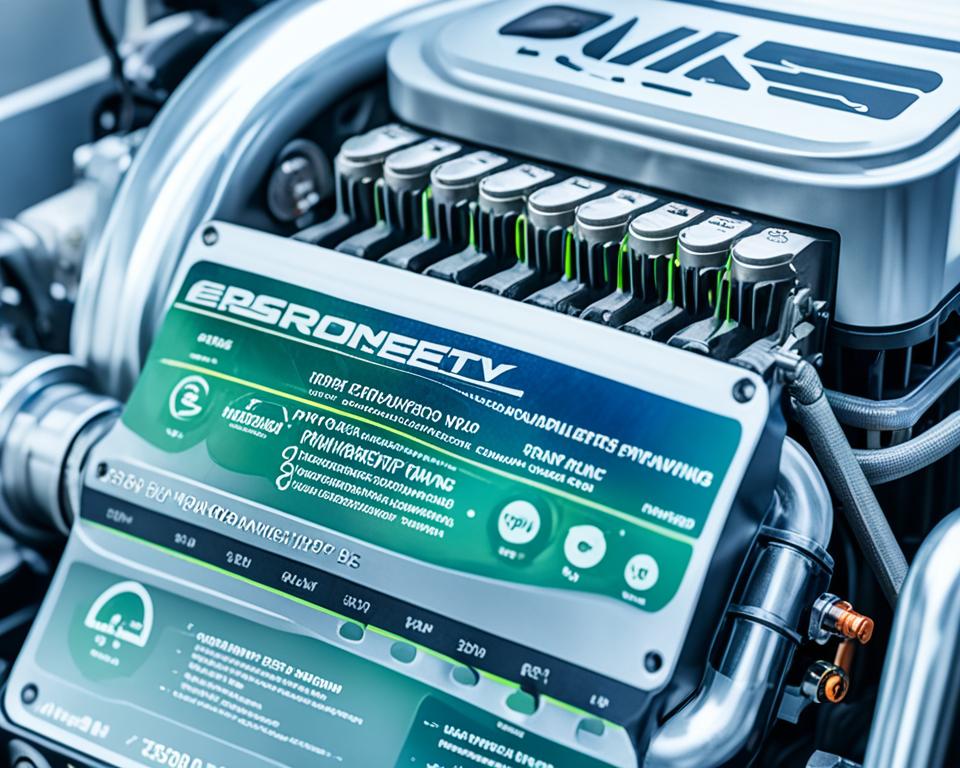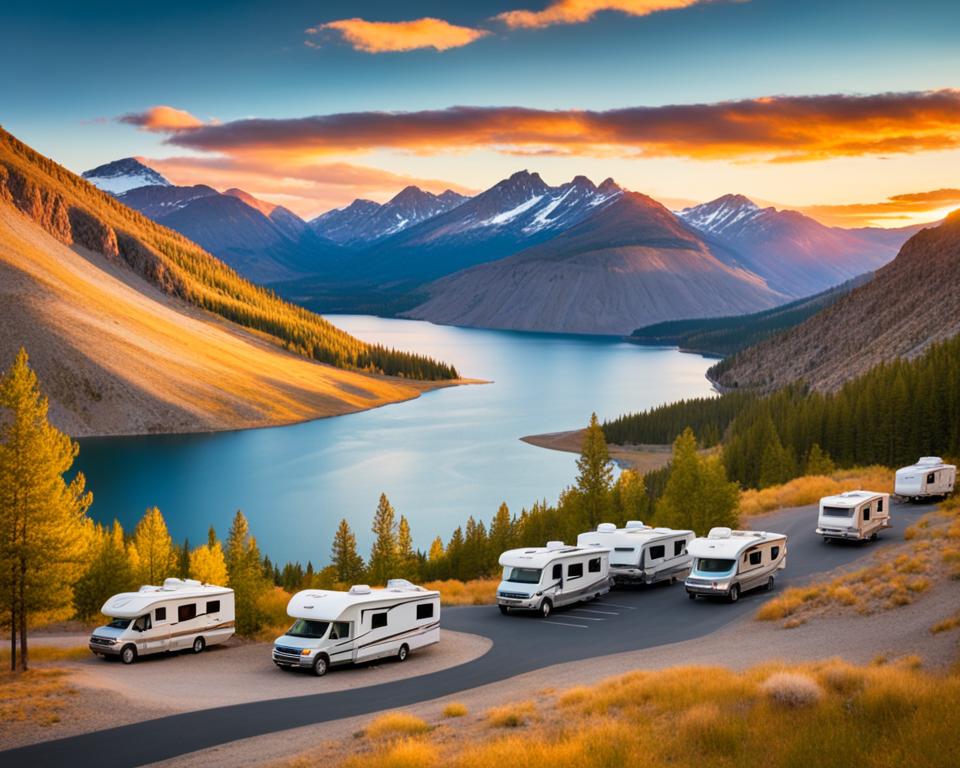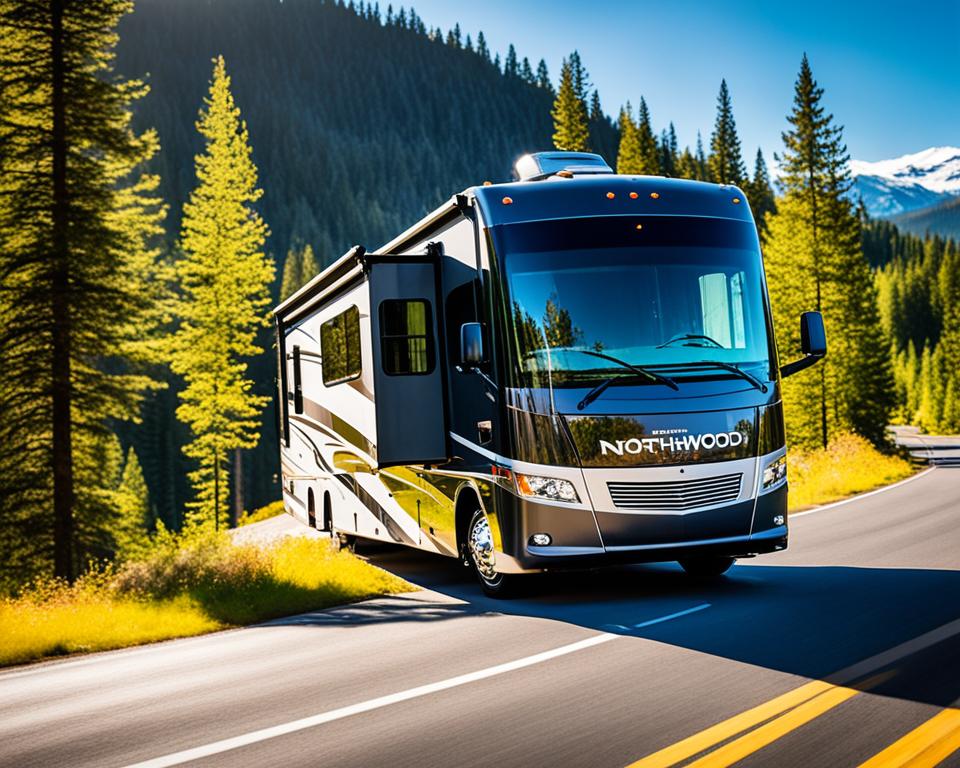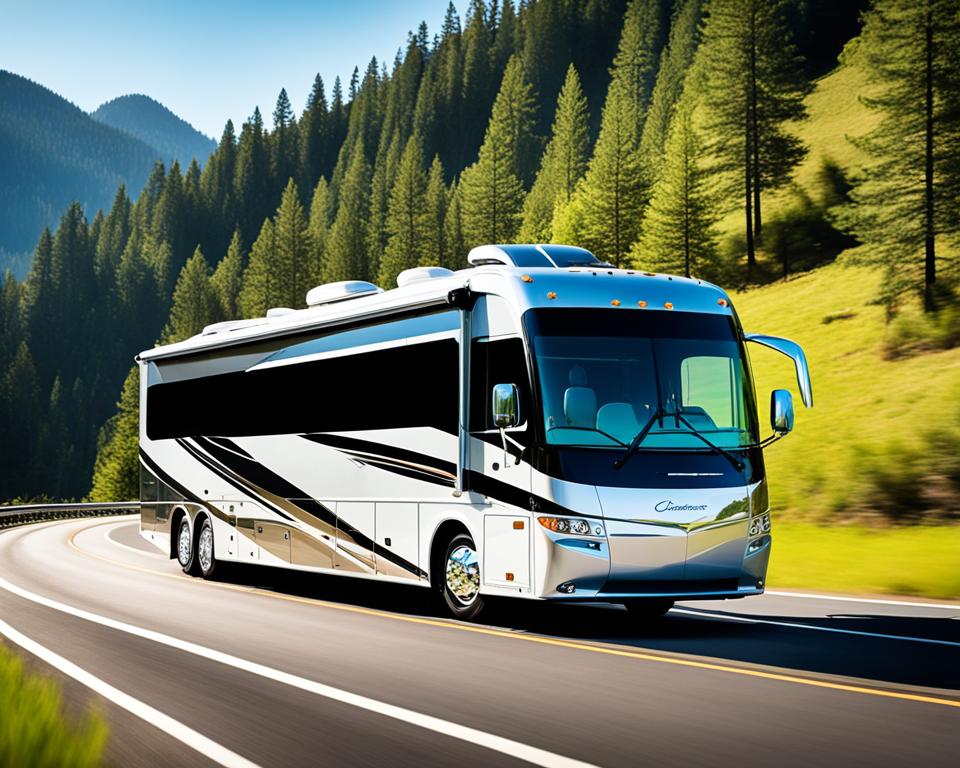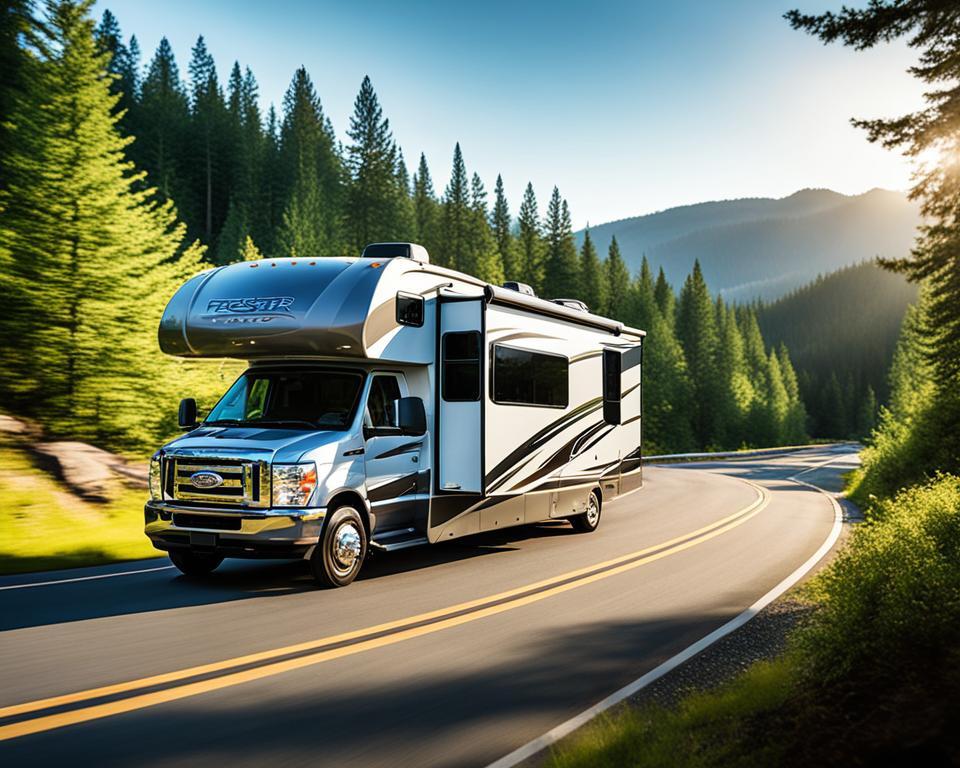Buying an RV is a significant investment, and protecting that investment with an extended warranty is something to consider. RV extended warranties are similar to extended warranties for regular cars but with some differences. It’s important to carefully read the service contract before purchasing one. There are several popular warranty providers in the market, including Select Auto Protect, CarChex, Endurance, and autopom!.
Key Takeaways:
- RV extended warranties provide additional protection for your investment.
- Read the service contract carefully before purchasing an extended warranty.
- Popular warranty providers include Select Auto Protect, CarChex, Endurance, and autopom!.
What is an RV Extended Warranty?
An RV extended warranty is a vehicle service contract that provides coverage for repairs on your RV. It offers protection for both the vehicle and the camper components, including the engine and the house portion. This warranty is separate from the purchase price of the RV and requires a separate contract.
When you have an RV extended warranty, you can have peace of mind knowing that unexpected repairs may be covered. In the event of a mechanical breakdown or failure, the warranty can help cover the cost of repairs, saving you from hefty out-of-pocket expenses.
Similar to auto warranties, an RV extended warranty typically comes with a deductible. This is an amount that you will have to pay out of pocket for each service visit or repair. The specific deductible amount may vary depending on your warranty plan and provider.
It’s important to carefully review the terms and conditions of the extended warranty before signing the contract. Take note of the coverage details, including any limitations or exclusions. Understanding the warranty coverage will help you make informed decisions when it comes to RV maintenance and repairs.
Now, let’s delve deeper into the different types of RV extended warranty plans and what you need to consider before purchasing one.
What to Consider Before Getting an RV Extended Warranty?
When it comes to purchasing an RV extended warranty, it’s essential to take several factors into consideration. While RVs are more prone to repairs due to their nature of use, extended warranties are sold by companies with the aim of making a profit. This means that statistically, customers may end up paying more for the warranty than they actually benefit from it. However, for individuals who experience significant repairs, an extended warranty can prove to be advantageous.
Before making a decision, it’s crucial to carefully assess the equipment in your RV and determine the necessary coverage. Different components, from the engine to appliances, may require specific protection. By choosing a plan that covers these essential components, you can ensure that potential repairs are taken care of.
Furthermore, it’s important to have a clear understanding of what the extended warranty does not cover. Some warranties may exclude certain types of damages, such as roof leaks caused by external factors. Familiarizing yourself with these limitations will prevent any unpleasant surprises in the future.
Remember: An RV extended warranty is a separate contract that requires careful review and consideration before signing up.
What to Look For in an RV Extended Warranty?
When it comes to selecting an RV extended warranty, it’s crucial to consider the type of coverage that suits your needs. Two common types of contracts available in the market are inclusive and exclusionary contracts.
- Inclusive contracts provide a comprehensive list of the components covered by the warranty.
- Exclusionary contracts offer coverage for everything except the specified exclusions.
While exclusionary contracts usually provide more extensive coverage, they tend to be more expensive than inclusive contracts. Therefore, it’s essential to carefully read the contract and review the components covered to ensure that your RV’s critical systems and appliances are included.
Moreover, some extended warranty plans offer optional extras that provide additional coverage beyond the standard warranty. These added benefits can provide extra protection and peace of mind for RV owners.
Comparing and Choosing the Right RV Warranty Plans
“When selecting an RV extended warranty, carefully review the coverage to ensure essential components are included and consider optional extras for enhanced protection.”
It’s recommended to compare different RV extended warranty plans and consider the following factors:
- Coverage: Review the list of components covered and ensure that the plan includes the critical systems and appliances in your RV, such as the engine, transmission, electrical system, and air conditioning.
- Optional Extras: Determine if the extended warranty offers optional extras that align with your specific needs, such as coverage for slide-outs, appliances, or roadside assistance.
- Terms and Conditions: Thoroughly read and understand the terms and conditions of the contract, including any limitations or exclusions that may impact your coverage.
- Reputation: Research the reputation and customer reviews of the warranty provider to ensure they have a track record of reliable service and claims handling.
- Price: Compare the prices of different warranty plans while considering the coverage and benefits offered. It’s important to strike a balance between affordability and comprehensive protection.
By carefully evaluating these factors and selecting the right RV extended warranty plan, you can have the peace of mind knowing that your investment is protected and that you have reliable coverage for potential repair costs.
What is the Cost of an RV Extended Warranty?
When considering purchasing an RV extended warranty, understanding the cost is essential. The price of an RV extended warranty can vary widely based on several factors:
- The type of RV (towable camper or motorhome)
- The price of the RV
- The equipment included, such as slideouts or appliances
- The frequency of RV usage
Inclusive contracts generally cost less than exclusionary contracts. Additionally, contracts for new RVs usually have lower costs compared to older models. The range of prices for RV extended warranties can be significant, depending on the coverage level and the value of the RV. Limited coverage plans typically start around $1,000, while comprehensive coverage for expensive motorhomes can exceed $10,000.
Average RV Extended Warranty Costs
| RV Type | Average Cost Range |
|---|---|
| Towable Camper | $1,000 – $5,000 |
| Motorhome | $3,000 – $10,000+ |
Is an RV Extended Warranty Worth It?
When it comes to RV extended warranties, the question of whether they are worth it often arises. From a financial standpoint, statistics show that customers usually pay more for the warranty than they get out of it. However, there are other factors to consider that may make an extended warranty valuable.
One of the main reasons why people opt for an RV extended warranty is the peace of mind it provides. Unexpected RV repairs can be costly and can put a dent in your travel plans. With an extended warranty, you can have the assurance that most major repairs will be covered, easing the financial burden and allowing you to enjoy your RV adventures without worry.
Additionally, an extended warranty can offer convenience and flexibility in terms of repair options. Some warranties provide coverage for repairs done at any certified RV repair shop, giving you the freedom to choose where to get your RV serviced. This can be especially beneficial when you’re traveling and need repairs in a location away from your dealer.
To determine if an RV extended warranty is worth it for you, it’s important to assess your personal situation. Consider factors such as the age and condition of your RV, your budget for potential repairs, and your own peace of mind. If you prefer having the security and financial protection that an extended warranty offers, then it may be worth the expense.
Ultimately, the decision to purchase an RV extended warranty should be based on your individual needs and preferences. While it may not always make financial sense, the peace of mind and potential savings on expensive repairs can outweigh the cost for many RV owners.
Pros and Cons of an RV Extended Warranty:
| Pros | Cons |
|---|---|
| Financial protection against costly repairs | The cost of the warranty may exceed the actual repair expenses |
| Peace of mind while traveling | Warranty work may have lower priority, leading to potential delays |
| Coverage for repairs at any certified RV repair shop | Some policies may have strict requirements and exclusions |
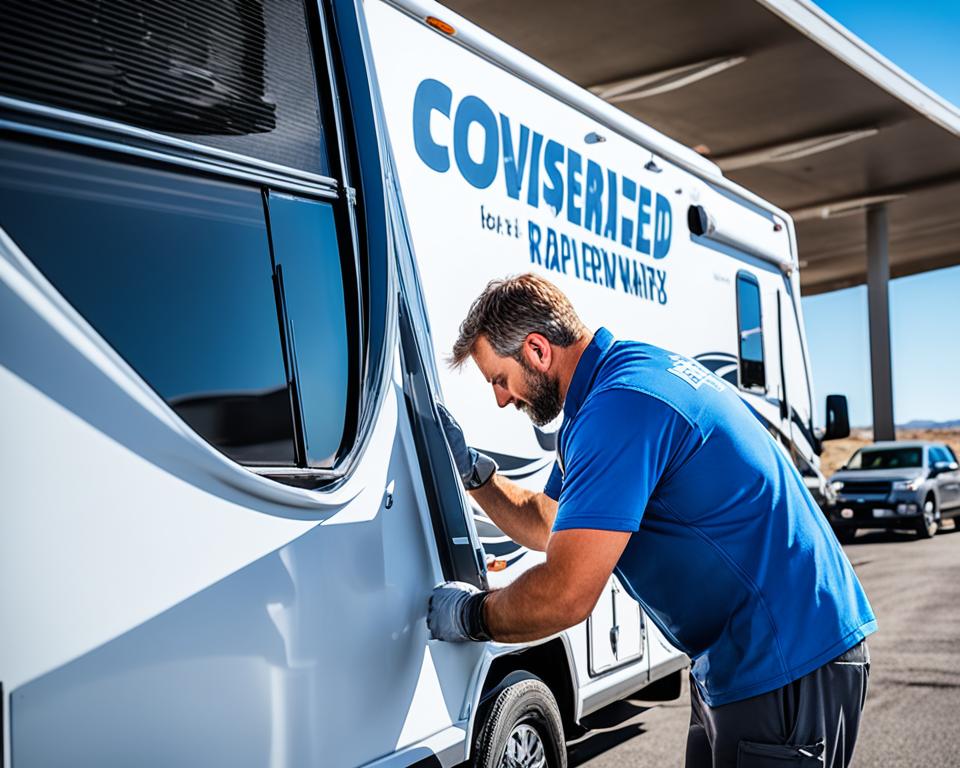
Ultimately, weighing the pros and cons and considering your specific circumstances will help you make an informed decision about whether an RV extended warranty is worth it for you.
Good RV Extended Warranty Companies
When it comes to choosing an RV extended warranty, it’s essential to select a reputable company that offers reliable coverage and excellent service. Here are some of the top RV extended warranty companies to consider:
America’s RV Warranty
America’s RV Warranty provides a range of comprehensive plans for both trailers and motorhomes. One standout feature of their warranties is the ability to transfer coverage to a new RV, ensuring you can continue protecting your investment even if you decide to upgrade. With competitive pricing and flexible options, America’s RV Warranty is a popular choice among RV owners.
Good Sam
Good Sam offers extended service plans for motorhomes, trailers, and tow vehicles. They provide customizable coverage options that suit different RV owners’ needs and budgets. Good Sam is known for their reliable customer service, making it easier for RV owners to navigate the warranty process and get the necessary repairs done efficiently.
Protective Asset Protection
Protective Asset Protection is a trusted choice, especially for those who purchase their RV from a dealership. Although their warranties may come at a slightly higher cost, they offer comprehensive coverage and peace of mind for buyers. Protective Asset Protection provides additional protection against unexpected repairs, ensuring your RV is well taken care of.
Wholesale Warranties
Wholesale Warranties is another reputable option in the market. They offer plans for various types of RVs, including motorhomes and towable trailers. In addition to standard coverage, Wholesale Warranties also provides optional extras such as roadside assistance and tire/wheel protection, offering comprehensive coverage to RV owners.
When choosing an RV extended warranty company, consider factors such as coverage options, pricing, customer reviews, and additional benefits. Researching and comparing different providers will help you make an informed decision and ensure your RV is protected with a reliable warranty.
Are Extended Warranties Necessary?
While extended warranties for RVs are not mandatory, they can be extremely helpful in protecting your investment. RV repairs can be costly, and specialty RV mechanics often charge more than regular mechanics. Having an extended warranty can provide peace of mind and help cover the expenses associated with repairs and replacement parts.
One of the key benefits of an extended warranty is the potential cost savings. RV repairs can quickly add up, especially if you encounter major issues with critical components of your vehicle. With an extended warranty, you can minimize out-of-pocket expenses and ensure that your RV remains in top condition without breaking the bank.
Additionally, an extended warranty can save you from the hassle of searching for a reputable mechanic or service provider. Most extended warranty plans come with a network of authorized repair facilities, making it easier for you to get your RV serviced by qualified professionals.
When considering whether an extended warranty is necessary for your RV, it’s important to assess your specific situation and needs. If you have a new or relatively new RV, it may already be covered by the manufacturer’s warranty. However, if you own an older model or want more comprehensive coverage, an extended warranty can be a wise investment.
One key consideration is to check the eligibility requirements for an extended warranty. Some warranty providers may have strict guidelines regarding the age, mileage, and overall condition of the RV. It’s essential to understand these requirements and ensure that your RV qualifies for coverage before making a decision.
Ultimately, the decision to purchase an extended warranty depends on your budget, risk tolerance, and peace of mind. If you’re someone who values the security of knowing that unexpected repairs will be taken care of, an extended warranty can offer valuable coverage. However, if you have sufficient savings or are comfortable bearing the costs of potential repairs, you may decide that an extended warranty is not necessary.
Before committing to any extended warranty plan, thoroughly review the terms and conditions, coverage limits, deductibles, and any exclusions. It’s essential to choose a reputable warranty provider that has a track record of serving its customers well.
Remember, an extended warranty is an investment in protecting your RV and ensuring your peace of mind as you embark on your adventures. Consider your needs, evaluate the costs and benefits, and make an informed decision that aligns with your unique situation.
| Pros of Extended Warranties | Cons of Extended Warranties |
|---|---|
| Provides peace of mind | May not recoup the full cost |
| Helps cover expensive repairs | Warranty work may have lower priority |
| Saves money if significant repairs are needed | Strict requirements and exclusions may apply |
What is Covered by an RV Extended Warranty?
The coverage provided by an RV extended warranty varies depending on the plan and company. Basic warranties typically cover essential components such as axles, engines, and transmissions. Some comprehensive plans cover almost every component of the RV, both inside and out. It’s crucial to read the policy carefully to understand what is and isn’t covered. Exclusions and limitations may apply.
Pros and Cons of RV Extended Warranties
The decision to purchase an RV extended warranty comes with both pros and cons. It’s important to weigh the benefits and drawbacks before making a decision.
Pros of RV Extended Warranties
- Peace of mind: One of the significant advantages of an RV extended warranty is the peace of mind it provides. Knowing that your investment is protected and that you have coverage for potential repairs can alleviate stress and worry.
- Coverage for expensive repairs: RV repairs can be costly, especially if major components or systems need to be fixed or replaced. An extended warranty can help cover these expenses and mitigate financial burden.
- Potential long-term savings: While statistically most customers don’t recoup the full cost of the warranty, it’s important to consider the potential long-term savings. If your RV experiences significant repairs during the warranty period, the coverage can result in substantial savings.
Cons of RV Extended Warranties
- Financial risk: The main drawback of RV extended warranties is the financial risk involved. In many cases, customers pay more for the warranty than they receive in benefits. It’s essential to carefully evaluate the cost of the warranty and consider whether the potential savings justify the expense.
- Prioritization and delays: Warranty work may not always receive top priority, leading to potential delays in repairs. This can be frustrating, especially when you’re facing significant RV issues and need immediate assistance.
- Strict requirements and exclusions: Some RV extended warranty policies may have strict requirements and exclusions that limit the coverage. It’s crucial to read the contract carefully and understand what is and isn’t covered to avoid any surprises when filing a claim.
Ultimately, the decision to purchase an RV extended warranty should be based on your individual needs, preferences, and risk tolerance. Assess the potential benefits and drawbacks, consider the specific coverage offered, and evaluate the reputation of the warranty provider. By making an informed decision, you can choose the best option for protecting your RV and ensuring peace of mind during your travels.
How to Choose the Best RV Extended Warranty
When it comes to protecting your RV investment, choosing the right extended warranty is crucial. To make an informed decision, follow these steps:
Research Different Companies
Start by researching different RV warranty companies to find ones that offer comprehensive coverage and have a solid reputation. Look for companies that specialize in RV warranties and have a track record of providing excellent customer service.
Compare Coverage Options
Once you’ve identified a few companies, compare their coverage options. Look for a plan that covers the essential components of your RV, such as the engine, electrical system, and plumbing. Consider any additional coverage options like slide-outs, appliances, or electronics that are important to you.
Read Customer Reviews
Customer reviews can provide valuable insights into the reliability and customer service of an RV warranty company. Take the time to read reviews from current and past customers to get a sense of their experiences with claims processing, repairs, and overall satisfaction.
Consider Your RV’s Specific Needs
Every RV is unique, so consider the specific needs of your RV when choosing an extended warranty. Assess the age, make, and model of your RV, as well as any additional components or features that may require coverage. Look for a warranty that aligns with your RV’s specific requirements.
Check for Additional Benefits
Some RV warranty companies offer additional benefits or optional extras that can enhance your coverage. These may include roadside assistance, rental reimbursement, or trip interruption coverage. Consider if any of these extra benefits would be valuable to you and factor them into your decision-making process.
Compare Prices and Terms
Finally, compare the prices and terms of different RV warranty providers. While cost shouldn’t be the sole determining factor, it’s important to ensure you’re getting the best value for your investment. Consider the deductible amount, claim limits, and any hidden fees when comparing prices.
By taking the time to research and compare RV warranty companies, coverage options, and customer reviews, you can choose the best RV extended warranty for your specific needs. This ensures that you have comprehensive coverage and peace of mind knowing your investment is protected.
| Company | Coverage Options | Customer Reviews | Additional Benefits | Price & Terms |
|---|---|---|---|---|
| Provider A | Inclusive & Exclusive | Positive | Roadside Assistance | Competitive Pricing |
| Provider B | Inclusive | Mixed | Rental Reimbursement | Flexible Terms |
| Provider C | Exclusive | Positive | Trip Interruption Coverage | Transparent Pricing |
*Note: This table provides a general comparison and is not an endorsement of any specific RV warranty company.
Conclusion
RV extended warranties provide an added layer of protection for your valuable investment. Although they may not offer significant financial benefits for most customers, they do provide peace of mind and help offset the costs of potential repairs. When selecting the best RV extended warranty for your needs, it is essential to carefully consider the coverage offered, the cost involved, and the reputation of the warranty provider. Take the time to read the policy thoroughly to ensure it aligns with your specific RV requirements.
While statistically, RV extended warranties may not be financially advantageous, they can offer valuable benefits. Ultimately, the decision to purchase an extended warranty depends on individual circumstances and personal preferences. By weighing the coverage, cost, and reputation of different warranty providers, you can make an informed choice to safeguard your RV and enjoy worry-free travels.
FAQ
What is an RV Extended Warranty?
An RV extended warranty is a vehicle service contract that covers repairs for your RV, including both the vehicle and the camper components.
What should I consider before getting an RV extended warranty?
Before purchasing an RV extended warranty, it’s important to understand the nature of RV repairs, assess the equipment in your RV, and choose a plan that covers the necessary components.
What should I look for in an RV extended warranty?
When selecting an RV extended warranty, consider the type of coverage you need, whether inclusive or exclusionary, and read the contract carefully to ensure it covers the necessary components and offers optional extras.
How much does an RV extended warranty cost?
RV extended warranty prices vary widely, depending on factors such as the type and price of the RV, the equipment included, and the frequency of RV usage. Prices can range from $1,000 to over $10,000.
Is an RV extended warranty worth it?
Statistically, RV extended warranties may not be financially beneficial for most customers, but they can provide peace of mind and help cover the cost of unexpected repairs.
Which are some good RV extended warranty companies?
Some reputable RV extended warranty companies include America’s RV Warranty, Good Sam, Protective Asset Protection, and Wholesale Warranties.
Are extended warranties necessary for RVs?
Extended warranties for RVs are not mandatory but can be helpful in covering the cost of expensive repairs and replacement parts.
What is covered by an RV extended warranty?
The coverage provided by an RV extended warranty varies depending on the plan and company, with basic warranties typically covering essential components and comprehensive plans covering almost every component of the RV, both inside and out.
What are the pros and cons of RV extended warranties?
The pros of RV extended warranties include peace of mind and cost coverage for major repairs, while the cons include the potential for not recouping the full cost and potential delays and exclusions.
How do I choose the best RV extended warranty?
To choose the best RV extended warranty, research different companies, compare coverage options, read customer reviews, consider your specific RV needs, and compare prices and terms of different providers.

